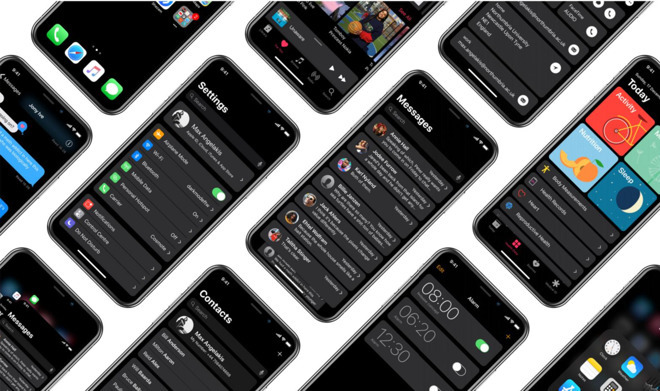Apple's "cultural shift" towards spacing out new features in iOS is more a natural function of development scale, and not really the revolution some people might perceive it to be, according to a noted former Microsoft Windows president.
"What happens to a growing project over time is that processes and approaches need to re-thought," Steven Sinofsky said on Twitter. "It just means that how things once scaled — tools like deciding features, priorities, est. schedules, integration test, etc — are no longer scaling as well."
The shift may feel "dramatic" for people inside of Apple because it's the first time they've witnessed that sort of change, and outside because people are looking for a cause and effect, he elaborated.
"In my view the 'moment' is being manufactured a bit right now because of the perception that the Apple products have become less stable or...'buggy'," he said, while commenting that in his own view, Apple's hardware and software are at "quality levels our industry has just not seen before."
On Monday, a report indicated that Apple's iOS development is switching from loading features into major annual releases into scattering them out over time. That may put less pressure on teams, since they can concentrate on a smaller number of features at any one point.
The change may take effect in earnest with this fall's "iOS 12," which should be previewed during June's Worldwide Developers Conference. Some improvements could include deeper integration of Siri into Spotlight search, and a better "Do Not Disturb" mode.
 Roger Fingas
Roger Fingas








 Charles Martin
Charles Martin

 Malcolm Owen
Malcolm Owen
 William Gallagher
William Gallagher

 Christine McKee
Christine McKee
 Wesley Hilliard
Wesley Hilliard









34 Comments
It’s ironic that Steve Sinofsky, former head or Microsoft Windows (not sure of his exact title), has become a user and strong supporter of Apple products. He’s knowledgeable about the internal workings of software development in large corporations. Interesting comments and observations IMO.
<<"In my view the 'moment' is being manufactured a bit right now because of the perception that the Apple products have become less stable or...'buggy'," he said, while commenting that in his own view, Apple's hardware and software are at "quality levels our industry has just not seen before.">>
That's some heavy PR spin. iOS 11 has been the buggiest release yet.
Perception trumps reality. In these forums we are constantly assailed by the negative narrative that Apple’s QA is down the drain. Every itty bitty hiccup is trumpeted as a disaster, a black eye for Apple. And it’s baloney. There is little doubt that the vast majority of Apple’s customers are perfectly happy with their gear, experiencing little if any game stopping issues. If that were not true then Apple wouldn’t be raking in wheelbarrow loads of cash and would not have the market positions it does. Of course the negative narrative is that people are stupid and will buy anything Apple produces... even if it doesn’t work? Really?
Why do we not hear about the failings of other tech companies? Is it because their products are perfect and bug free? Hardly and we all know that. I read an article a few weeks ago that dealt with how hackers are making millions of dollars a year from Android malware. Android is ridiculously fragmented and many device owners can only dream about getting security and bug updates. But we never hear about any of this do we?
Finally, the author thinks that Apple’s hardware and software quality is at levels the industry has not seen before. I agree.
I think it's a conscious decision by Apple around the time that Forstall left. Apple management decided it was better to move faster to add features than it was to make sure that all features were well implemented and solid. Apple has adopted a more iterative approach, where they release a rougher product, then refine it. This is mainly a difference in degree, though. Apple still tries to release great first products; they just tolerate a lot more issues than they did previously. I think this is partly because they don't have Jobs any more, so they can't really rely on their "taste" to release a better first attempt. For example, the first watch OS was pretty rough, and their third-party app support was very bad. The current watch OS is much, much more pleasant to use. Under Apple's old way of doing things, the watch would have started as a limited but more refined product without apps, then new features would have added carefully.
My tendency is to prefer the refined style, but they have different management now without Jobs and Forestall. Also, it's hard to argue with Apple's success.